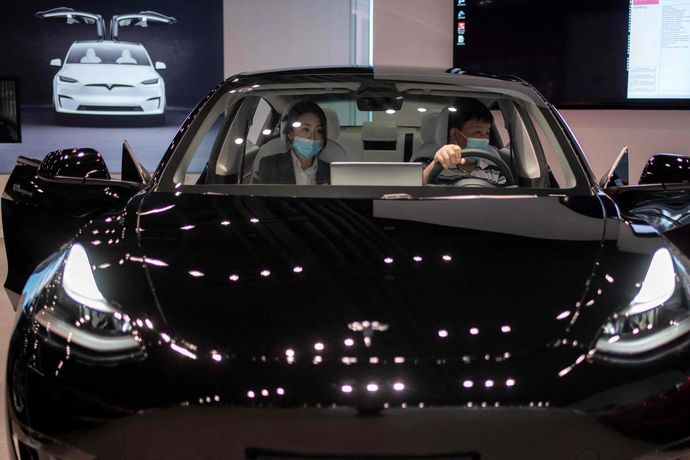Did Tesla’s sales really bounce back despite customer backlash?
Figures suggest that Tesla’s sales bounce back in China in May after a short slump. This is a big boost for the EV maker as it looks to overcome its first major stumble in one of its most important markets.
The China Passenger Car Association said that Tesla delivered 21,936 cars to Chinese customers in May. This is almost double the number sold the month before. But still, well below the near 36,000, shipped in March. Tesla didn’t publish these numbers officially.
While Tesla’s reputation has undoubtedly taken a hit, the May sales data suggest many local consumers are sticking with the American EV brand, which started building the Model Y at its Shanghai plant in January and is ramping up deliveries.
Why did the sales plummet?
In April, Ms. Zhang, a tesla customer, stage a protest at Auto Shanghai, China’s premier auto-industry Expo. She was berating the company for allegedly selling her a vehicle with defective brakes. At first, Tesla dismissed these claims and said it was staged by rivals. This poor handling of customer complaints earned widespread criticism from all over China.
In an April post on its Weibo social-media account, Tesla assured customers that it takes quality concerns seriously. “If there is a problem with Tesla products, Tesla will absolutely take responsibility,” it said.
However, Cui Dongshu, the association’s secretary-general, has warned it may be too early to know how seriously the negative publicity has damaged Tesla since many of the cars being delivered in May would have been ordered before the auto maker’s recent setbacks.

Ripple effect of the protest
Since then, other Tesla owners have backed Ms. Zhang’s protest online, praising her for what some perceived as a moral stand against an arrogant foreign enterprise. Accidents involving Tesla cars have also been pored over by the Chinese media, sowing doubts in consumers’ minds about the company’s safety record.
In a country where hundreds of fatal car crashes happen every day, accidents involving Tesla cars have been amplified by social media, and the company probably faces a public-relations crisis rather than a safety one, said Jeff Cai, general manager of auto products at J.D. Power China. The company can still win Chinese consumers if it can demonstrate it takes their concerns seriously, he said.
The PR crisis is getting real
Until its recent difficulties, Tesla had overwhelmingly been seen as a prestigious brand in China. But, adverse publicity has prompted some Tesla buyers to walk away.
For example, Han Maoyu, who works for a tech company in Suzhou, had ordered a Model Y in February. But, He canceled last month because of the steady stream of news stories questioning the safety of Tesla’s cars.
“I didn’t expect so many things to happen while I waited to get the car,” Mr. Han said. “I used to really like Tesla and I trusted the brand, but lately whenever I heard that another Tesla had crashed I panicked in case the same thing should happen to me.” He said he would now buy a car from NIO Inc., a Chinese EV maker.
Tesla had outpaced its Chinese rivals in the first three months of the year. It sold 69,280 vehicles. In comparison, BYD Co. sold 53,380 passenger EVs in the quarter. While the U.S.-listed startup trio of Li Auto Inc., NIO, and XPeng Inc. collectively sold 45,979.
But in April and May Tesla fell behind. BYD sold 56,715 EVs during the two-month period, while the three startups sold a combined 34,528 cars—more than Tesla’s 33,607. Tesla exported 11,527 made-in-China cars last month compared to 14,174 in April.



